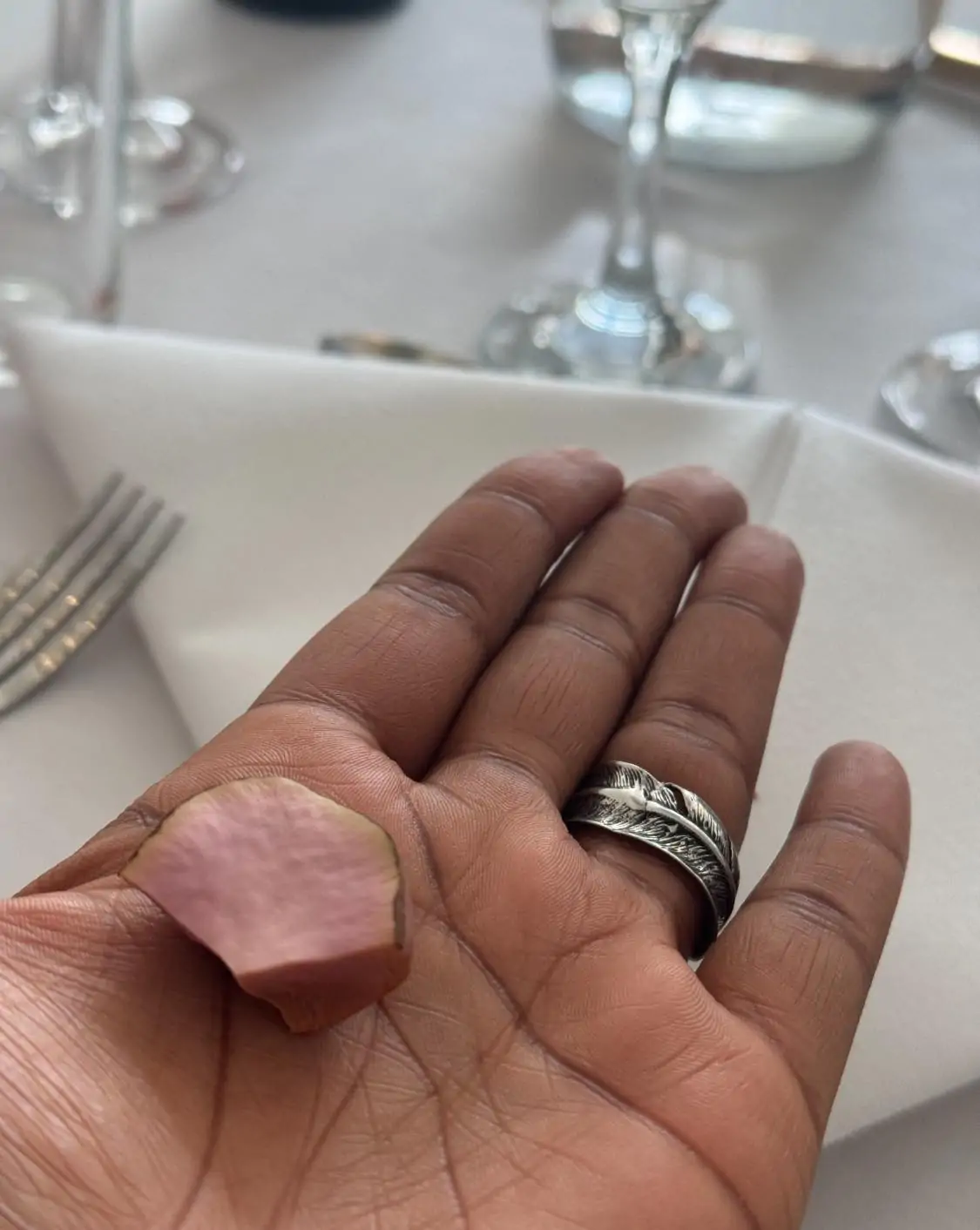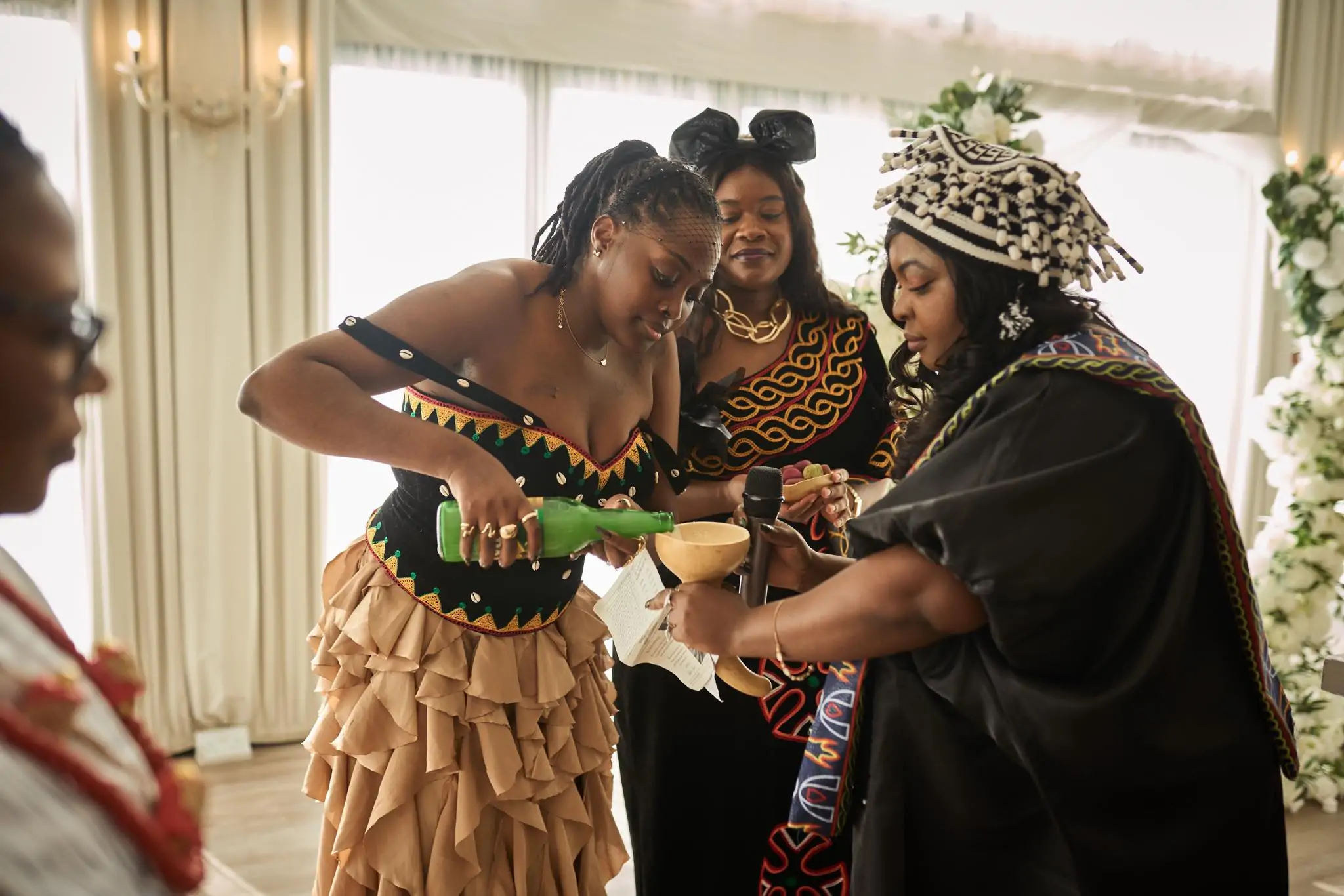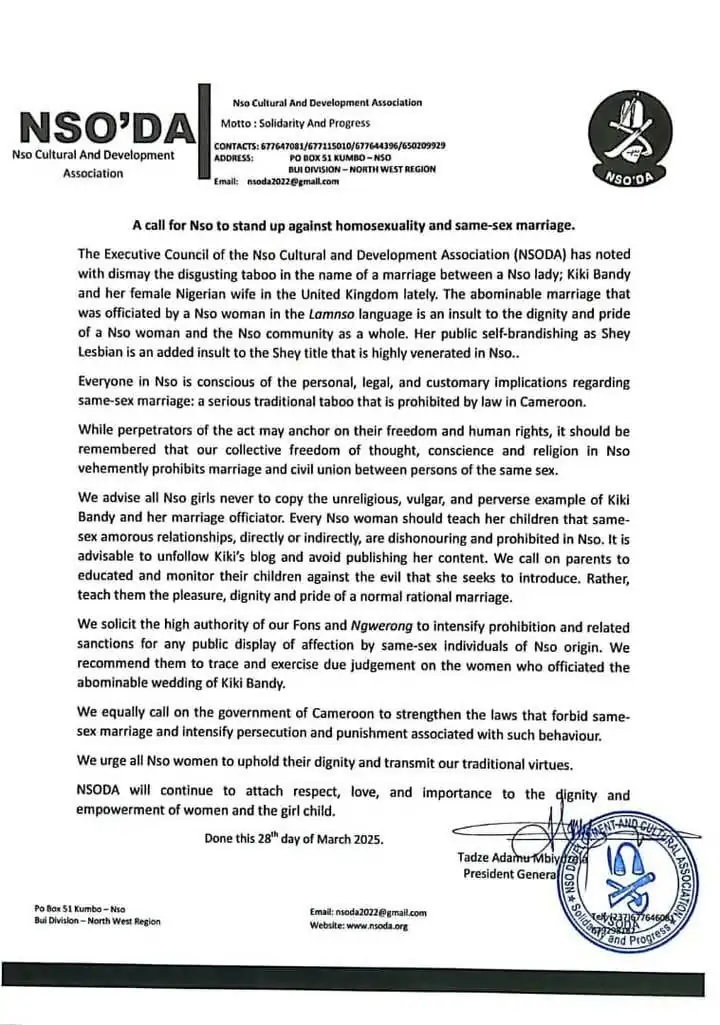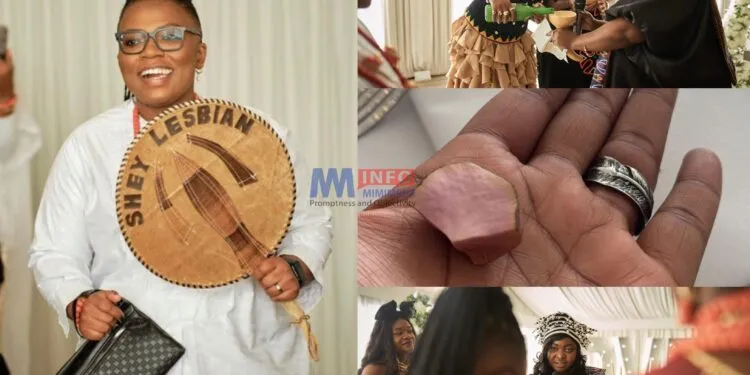A wedding is often a deeply personal yet culturally significant event, and for UK-based Cameroonian LGBTQ+ activist Bandy Kiki, her recent marriage was both a celebration of love and an assertion of identity. However, what was meant to be a joyous occasion has also ignited controversy within her native Nso community, drawing sharp criticism from the Nso Cultural and Development Association (NSODA). NSODA accused her of undermining cultural norms. Bandy Kiki, however, argues that this is not what her marriage sought to do.
A Dream of Tradition and Identity
Bandy Kiki, known for her vocal advocacy for LGBTQ+ rights, has long expressed pride in her Nso heritage. When she tied the knot with her Nigerian wife in the United Kingdom, she made a deliberate effort to incorporate Nso traditions into the ceremony. In a social media post, Kiki shared her deep connection to her cultural roots:
“I’ve always dreamt of having a traditional wedding. If you know me, you know how proud I am to be Nso. It’s in my blood; it’s in my soul, and I wanted that heritage to be front and centre on such a special day.”
Central to the wedding was Marline Oluchi, who officiated the traditional rites in Lamnso. A gender justice and LGBTQIA+ rights advocate, Oluchi’s role in the ceremony was particularly groundbreaking. The rituals included the breaking of the kola nut and the pouring of palm wine. These are acts traditionally performed by men in Nso culture. For Kiki, this was not just about celebrating her union but also about pushing the boundaries of tradition.



“Seeing Marline step into that space with confidence and grace was a moment I’ll never forget. We weren’t just honouring tradition; we were expanding it, reimagining it, making space for more of us in it.”
NSODA’s Rebuke
While Kiki and her supporters saw the event as an empowering evolution of Nso traditions, NSODA strongly condemned the wedding, calling it a cultural and moral affront. In a strongly worded statement, the association described the marriage as an “abominable” act and expressed dismay at the fact that it was officiated in the Lamnso language:
“The abominable marriage… officiated by a Nso woman in the Lamnso language is an insult to the dignity and pride of a Nso woman and the Nso community as a whole.”
NSODA criticised Kiki’s self-identification as “Shey Lesbian,” arguing that the respected Shey title traditionally belongs to individuals who have made significant contributions to the Nso community. The association warned against what it described as the dangers of embracing LGBTQ+ identities, urging Nso women to reject such influences.

A Clash of Values: Tradition vs. Modern Identity
The reactions to Kiki’s wedding highlight a broader tension between traditional African values and evolving perspectives on gender and sexuality. While NSODA maintains that same-sex unions are incompatible with Nso customs and Cameroonian law, Kiki and her supporters argue that culture is not static and should evolve to be more inclusive.
Kiki’s approach to tradition was about representation and redefinition. For her, the wedding was an opportunity to demonstrate that LGBTQ+ individuals can still celebrate and uphold their cultural heritage in meaningful ways. Her words reflect this sentiment:
“In my book, we did Ngonnso proud.”
However, NSODA sees such interpretations as a threat to the moral and social fabric of the community. They have called on traditional rulers, including the Fons and Ngwerong, to take disciplinary action against those involved in officiating the ceremony. Additionally, the association has urged the Cameroonian government to strengthen laws against same-sex marriage and intensify enforcement.
A Divided Response
Kiki’s wedding has provoked a range of reactions. Many LGBTQ+ activists and allies have celebrated her courage, seeing the event as a powerful statement of love and resilience. Others, particularly within conservative and traditionalist circles, view it as an unacceptable defiance of Nso customs.
Kiki’s wedding is generating discussions on cultural identity, tradition, and the rights of marginalised groups as the global conversation on LGBTQ+ rights evolves. It is not yet clear whether her act will inspire more change within the Nso community or reinforce traditional resistance, as already appears to be the case.
Bandy Kiki’s wedding clearly makes personal history. It challenges long-held norms and forces a conversation that many in her community prefer to avoid.



